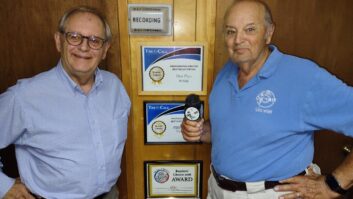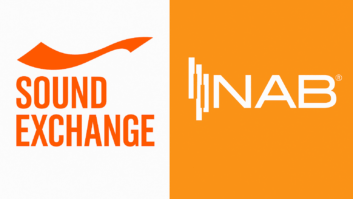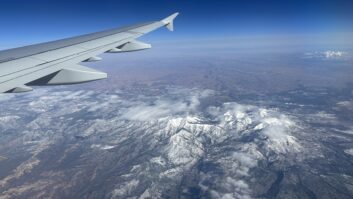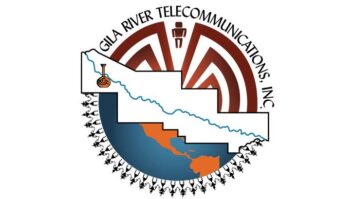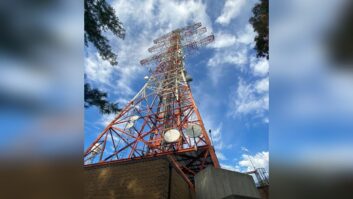The author works at Encompass Digital Media, managing the transmission and distribution services for BBC World Service.
ENGLISH BAY, Ascension Island — A six-mile stretch of volcanic rock in the middle of the South Atlantic Ocean is home to the BBC’s Atlantic Relay Station.
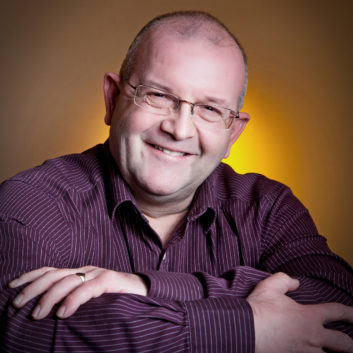
Now managed and operated by Encompass Digital Media on behalf of the BBC World Service, the stations’ six powerful shortwave transmitters on Ascension Island beam program in a dozen or more languages to some 30 million listeners in north, west and central Africa.
It’s a remarkable and fascinating diversion for a digital media business better known for providing video streaming, TV playout and OTT services — but it’s not only the shortwave transmission site on Ascension that Encompass is responsible for. The company’s engineers also run the island’s power station (consisting of five diesel generators and five wind turbines) as well as a reverse osmosis desalination plant, supplying electricity and drinking water to the island’s population of more than 800 people.
A BRIEF HISTORY
Originally garrisoned by the British Navy in the early 19th century, Ascension Island, a British overseas territory, proved to be a useful stopping off point for ships crossing the Atlantic due to its location almost half-way between Africa and South America. It remains a strategic communications and logistics hub for both the United Kingdom and United States.
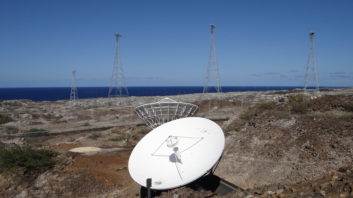
The United States built an airbase on the island during World War II and later expanded the runway to allow for larger aircraft — it even served as an emergency runway for NASA’s Space Shuttle, although thankfully it was never used.
The British Royal Air Force also has a military base on the island, sharing the same runway. It was a key base during the Falkland Islands conflict in 1982.
The European Space Agency maintains a monitoring base there along with a small monitoring site for NASA and the United States Department of Energy.
In the mid-1960s, the BBC built a relay station at English Bay on the northern tip of the island to transmit shortwave radio broadcasts to Africa and South America, plus a power station to provide the electricity.
A LIFELINE FOR AFRICA
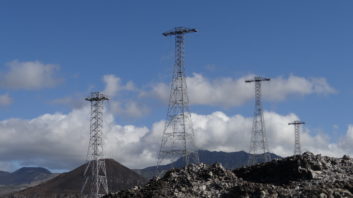
For more than 50 years, the Atlantic Relay Station has transmitted critical radio broadcasts to millions of listeners in some of the remotest parts of Africa. The daily broadcasts include transmissions in English, French, Arabic, Hausa, Somali, Swahili and several other African languages, and more recently has added transmissions for other international broadcasters as well as the BBC.
The shortwave transmitters include two 250 kW Marconi BD272 transmitters originally installed in 1966 (and still in daily use) and four 250 kW RIZ K01 transmitters, which are also capable of transmitting in Digital Radio Mondiale mode.
Each transmitter can be switched to one of more than 20 antennas, which consist of HF curtain arrays beaming toward target areas in Africa and South America. Programming from London is delivered via satellite, with resilience and backup feeds provided by Encompass. The power station is staffed around the clock with engineers taking remote control of the transmitter site outside of peak broadcast times.
TRANSMISSION
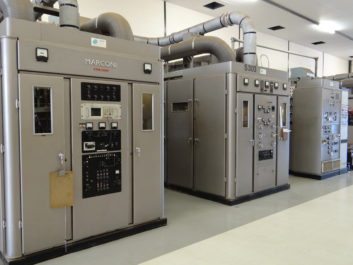
Ascension typically transmits around 1,800 hours of program each month on shortwave for the BBC and other broadcasters. Most of these are beamed into Africa, but with the massive footprint of a shortwave transmission, some frequencies are also audible across much of Europe and the Middle East. Although the BBC closed its shortwave service for North and Latin America some years ago, the ability to transmit westward still exists.
There are currently no regular scheduled DRM broadcasts from Ascension Island but it has recently transmitted several digital test transmissions to South Africa and Brazil, proving that DRM on the shortwave bands (DRM30) can reach vast international audiences and deliver high-quality audio as well as data services.
The station’s engineers also maintain the island’s FM transmitters on Green Mountain (an extinct volcano), which broadcasts BBC World Service and the British Forces radio service (BFBS) to the local audience of servicemen and women, civilian contractors and their families.
OPERATING CHALLENGES
Atmospheric conditions, seasonal variations, sunspots and a host of other factors determine the propagation of shortwave transmissions and therefore affect the audibility of the signal in the target area. Encompass’ specialist team of frequency managers plan all of the BBC’s transmissions and work closely with other international broadcasters to choose the optimum frequencies at various times of the day. But in the case of Ascension, that’s the least of the problems of operating a high-power transmitter site on a large volcanic rock in the middle of the ocean.
Getting supplies, spares, and, of course, staff on and off this remote island, nearly 2,000 miles off the west coast of Africa, is an enormous logistical challenge. Advance planning is essential; everything has a lead-time of several weeks if not months. When the transmitter station needs a spare part, you can’t just drive to the local store or order online. A supply ship from the U.K. calls at Georgetown several times a year, but the islands’ only “convenience store” usually sells out of fresh fruit and vegetables within the first week of a new delivery.
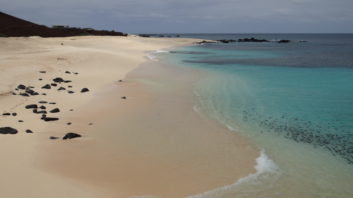
Until a little over a year ago, reaching Ascension Island was relatively straight forward; an RAF plane bound for the Falkland Islands used to touch down on the island twice a week to refuel.
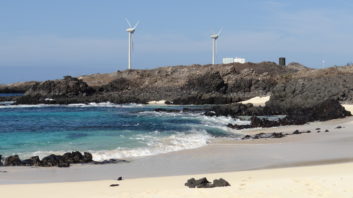
However, there is currently a major project being undertaken to repair and resurface the runway and until this is completed, regular access is limited to much smaller military planes.
There is one commercial flight a month from Ascension’s nearest neighbor, Saint Helena (more than 800 miles, or a two-hour flight away) that links with Johannesburg, but these few military and commercial routes are the only opportunities to get people and goods to and from the island.
[Read: A Unique Approach to Cutting AM Costs]
Without all of the vital resources and services provided by Encompass engineers, the daily shortwave broadcasts simply wouldn’t happen, let alone the 24/7 power and water supply to the island’s population. The 800 or so people living on the island are in a unique position, and they have to work together in order to survive.
The shortwave transmitter station is as important today as ever, broadcasting to one of the BBC’s largest audiences in the world — all from a rock in the middle of the South Atlantic.

